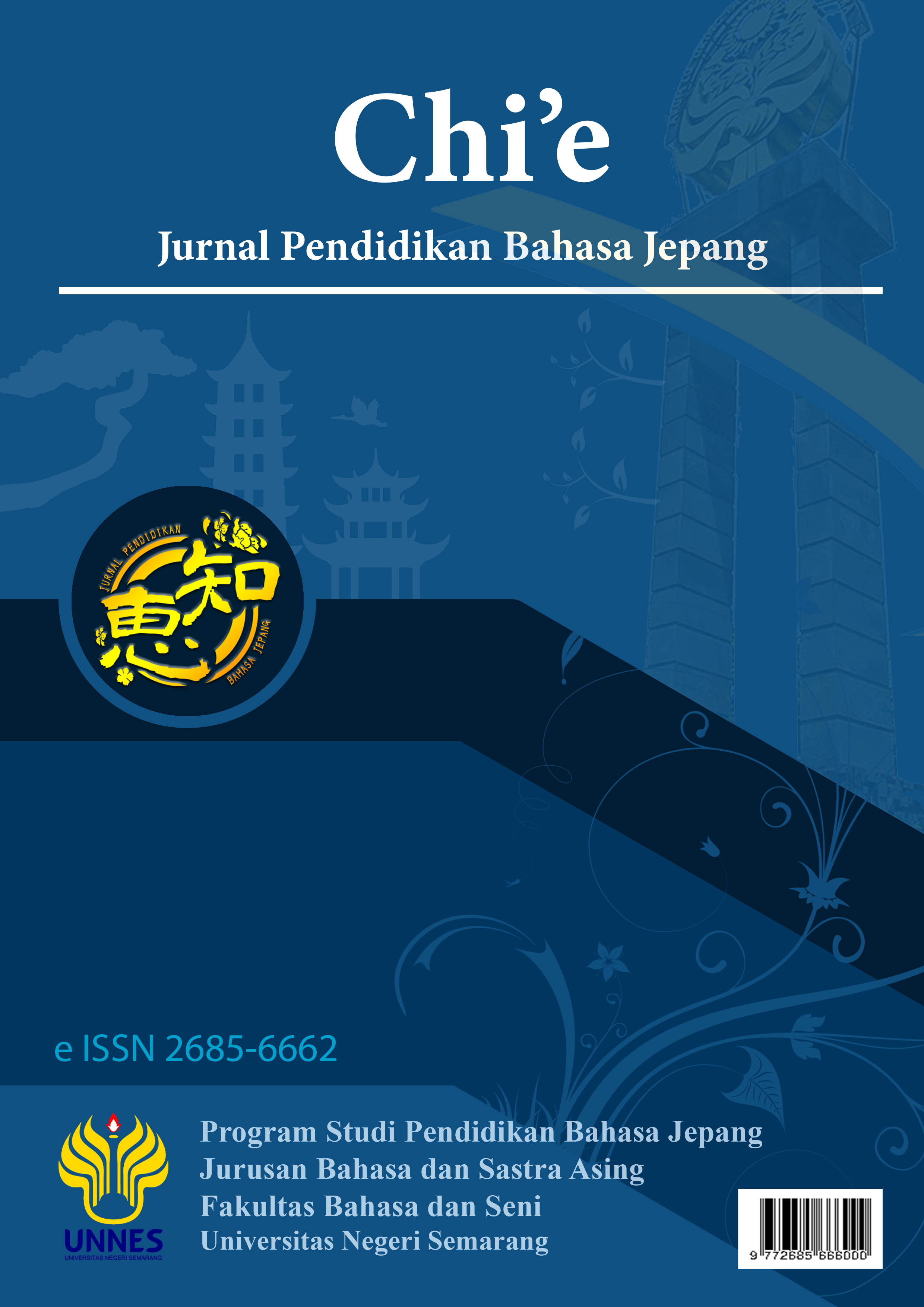Konsep Uchi-Soto Dalam Penerjemahan Yari-Morai
Studi Kasus Mahasiswa Bahasa Jepang Universitas Diponegoro
Abstract
This study aims to describe the understanding of Japanese language students about the ‘uchi-soto’ concept which is the standard for Japanese people when using the ‘yari-morai’ expression. This also relates to the process of translating speeches containing the verb ‘yari-morai’. Data sources are Japanese manga (Japanese) and a questionnaire that lists structured questions. The method used in data collection is the listening method with tapping technique as the basic technique and the listening-free-engaged-conversation technique as an advanced technique. Whereas in the analysis using contextual and descriptive methods, the sentence is analyzed by explaining the context, the concept of ‘uchi-soto’ in relation to the use of ‘yari-morai’ auxiliary verbs, assessing the results of the translation and relating it to the concept of ‘uchi-soto’ in the linguistic realm. The results of this study indicate 1) in the yaru and ageru verbs, it was found that the respondents' understanding of the uchi-soto concept was the same lack. 2) on the morau verb, the authors found that respondents were able to determine the uchi-soto relationship and 3) in the kureru verb, some respondents can distinguish and determine the uchi-soto relationship well, however, when the kureru verb becomes kudasaru, even though the respondent can still recognize the uchi-soto relationship, some 100% of the translating results of the respondent are incorrect. So, from the students' understanding of the concept of uchi-soto which is associated with the results of translation it is known that it does not significantly correlate with student competence in translating utterances that contain yari-morai verbs and vice versa. Although some respondents answered correctly the uchi-soto relationship of the speakers involved in a conversation, it was not in accordance with the translation that resulted from both accuracy and acceptance. On the other hand, although the respondent is able to translate the fragments from the utterances, it is not able to determine the right relationship between speakers with other parties in the given conversation situation.Keywords:
expressions; uchi-soto; yari-morai; translation
Published
2020-03-28
Issue
Section
Articles















